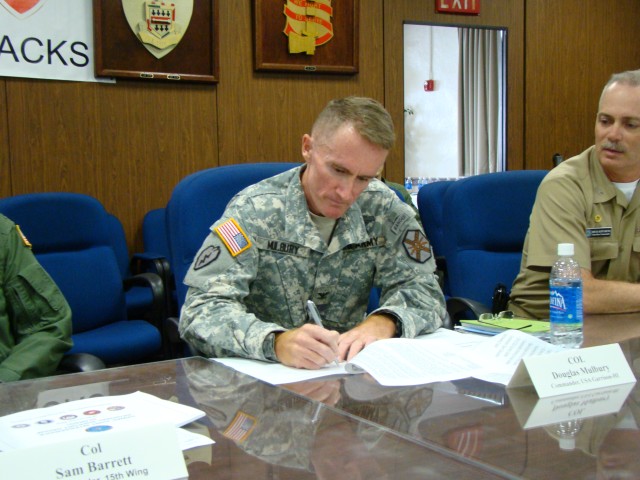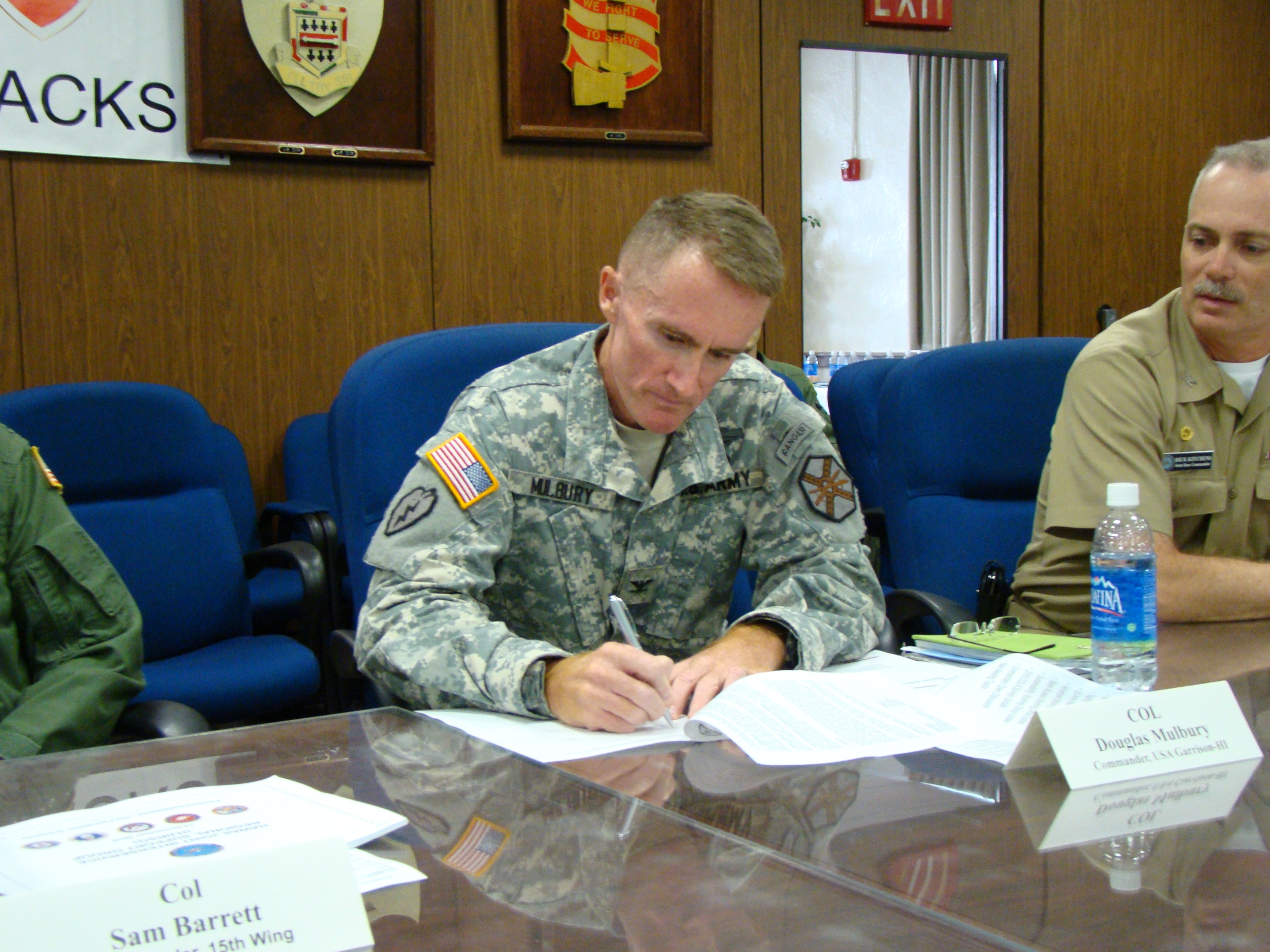SCHOFIELD BARRACKS, Hawaii - Commanders from Oahu's military installations formalized their unified commitment to reduce solid waste and enhance recycling with a memorandum of understanding, or MOU, signing, here, Nov. 16.
Col. Douglas Mulbury, commander, U.S. Army Garrison-Hawaii; Col. Robert Rice, commanding officer, Marine Corps Base Hawaii; Capt. Richard Kitchens, commander, Joint Base Pearl Harbor-Hickam; and Cmdr. Erich Klein, commanding officer, Coast Guard Base Honolulu; signed the Collaborative Qualified Recycling Programs Partnership, or CQRP MOU, during the quarterly meeting of the Hawaii Joint Interservice Regional Support Group, which joins installation commanders to share ideas and resources.
The CQRP MOU capitalizes on sharing and promotes collaboration, leveraging resources and maximizing sustainability benefits and economic returns in the solid waste management and recycling arena.
This MOU is the brainchild of the HJIRSG's Joint Sustainability Working Group, or JSWG.
During JSWG meetings and discussions, it became apparent that the services shared many of the same challenges, one of which was solid waste. Solid waste is a huge problem, according to David Zuckerman, JSWG chair and sustainability program manager for the Installation Management Command-Pacific Region.
"If we can't reduce or eliminate solid wastes, only three options currently exist: put it in a landfill, convert it to energy or recycle it." Zuckerman said. "We can't afford to put waste in a landfill because these 'wastes' have value. Also, landfill disposal is costly and limited."
Landfill space is at a premium on Oahu, with only one primary garbage disposal site, the Waimanalo Gulch landfill. Raising the refuse repository stakes even higher, this landfill was supposed to close in 2008, but Hawaii's Land Use Commission approved delaying the closure until July 2012, because no viable solution for the island's wastes existed.
Waste collection and disposal is an expensive business. In 2010, the Army in Hawaii paid approximately $1.5 million to have its waste removed.
"From the Army's perspective, the concept of not having waste means not having to pay for waste disposal," Zuckerman said, but he added that for him and his JSWG counterparts, it's getting harder and harder to use the term waste.
"Our disposables are not wastes; they are commodities," he said. "They have dollar values, and if not a dollar value per se, they have sustainability benefits like environmental stewardship."
Turning so-called trash into treasure is one of the goals CQRP partners hope to achieve with the CQRP MOU, at the same time saving taxpayer dollars and freeing up military funding for more important uses.
Their first two trash-to-treasure initiatives are expanding cooking oil recycling from dining facilities and exploring waste gasification, which converts solid waste to energy.
In the past, the island's military services each paid to have their used cooking oil hauled away, but things are changing, and the Army is leading the change.
USAG-HI now has a contract to have its oil collected for free, and with the CQRP MOU in place, the Army can be the executive agent for a joint services agreement that will enable all the local service branches to get in on the free oil pickup.
But that's only the first step.
Next, CQRP partners will work on arrangements for getting the used oil back - in the form of biodiesel - at a fixed cost, as opposed to buying biodiesel off the open market.
Essentially, the cooking oil used in chow halls will power military vehicles, saving money and contributing to energy security in the process.
Future CQRP plans include exploring collaborative partnerships with the City and County of Honolulu, as solid waste management and recycling continue to challenge military and local agencies.


Social Sharing